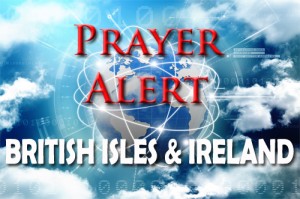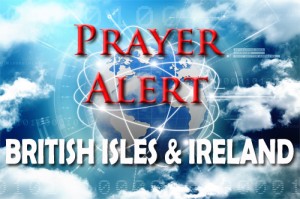Displaying items by tag: Persecution
Nigeria: Christians still being ambushed and killed
On 10 June Muslim Fulani herdsmen killed two Christians and seriously wounded another in central Nigeria. Ibrahim Weyi, 45, and Larry More, 53, were hacked to death when herdsmen ambushed them as they were going home on a motorcycle from an evening worship service. A third Christian, 23-year-old Samuel Weyi, was wounded and is in intensive care. Lawrence Zango said, ‘Fulani herdsmen have continued to kill innocent Christians in our villages, yet the Nigerian government has not taken proactive measures to end the onslaught.’ President Muhammadu Buhari is also a Fulani Muslim. A spokesman for the Plateau State Command said an investigation is under way. Herdsmen attacks on Christian communities in the Bassa area intensified late last year and have continued in spite of the presence of military personnel. Victims are either ambushed and killed or attacked in their homes at night.
Myanmar: ‘genocidal campaign’ against Christians
The Myanmar army is waging a ‘genocidal campaign’ against Kachin Christians, using the same tactics that forced nearly a million Rohingya to flee the country. ‘What we found in this forgotten part of the world was worrying evidence of a second genocidal campaign, this time against the Kachin’, stated a Sky News correspondent on 4 June. Attacks on Kachin areas have increased substantially since January. The forces that spent months driving the Rohingya Muslim ethnic minority out of western Myanmar are now deployed in the north and applying similar tactics, including helicopters, heavy artillery, and burning villages to the ground. The most recent attacks have displaced 10,000 from the mainly-Christian Kachin ethnic minority. One mother of four told journalists, ‘The Burmese government is trying to carry out ethnic cleansing of the Kachin people. Whenever they see Kachin civilians they kill them. If they see a Kachin woman they will rape her, even a pregnant woman.'
Lord Sacks challenges the nation
Lord Sacks recently commented on Radio 4, ‘I have been doing Thought for the Day for thirty years, and never thought that in 2018 I would still have to speak about anti-Semitism’. He was born after the Holocaust and recalled people saying ‘never again’. But in 2018 anti-Semitism is debated in parliament and is a focus for the Labour Party. Anti-Semitic incidents have risen to their highest level since records began in 1984, averaging four a day. Lord Sacks said, ‘This is not the Britain I know and love’. He reminded listeners that anti-Semitism is not confined to Britain. ‘Jews in almost every European country no longer feel safe. This is within living memory of the Holocaust, when 1.5 million children were murdered simply because their grandparents were Jews. All it takes for something bad to flourish is for good people to do nothing.’
Global: praying for the persecuted
Since Jesus laid down His life, tens of millions of Christians have become martyrs. When mission agencies and the media tell us about Christian persecution, we can become overwhelmed and not know where to start or what to pray. The New Testament was written to persecuted believers, and is filled with examples of how to pray for Christians under attack. Here are examples from Ephesians to inspire our prayers: - may believers know the hope God gives (1:18); - for the Holy Spirit’s strengthening (3:16); - may persecuted believers know how much God loves them (3:17); - may they would know how to share the gospel (6:19) and fearlessly tell others about Jesus (6:20). We can also pray that believers have access to a Bible, and for God’s anointing and inspiration for mission agencies and translators who produce and distribute the Bible in different languages. See also Open Doors resource on prayer by clicking the ‘More’ button.
Pakistan, Iran, Burma, Nigeria, Mexico: Religious discrimination in schools
Christian Solidarity Worldwide called for action to end religious discrimination in Pakistani, Iranian, Burmese, Nigerian and Mexican schools. They explored violations where many children experience various forms of mistreatment because of their faith. During an event at the Speaker’s House, in the United Kingdom Parliament, attendees heard how children and young people experience discrimination, verbal abuse, physical violence and even forced conversion at school because of their religion or belief. The Executive Director of the National Commission for Justice and Peace in Pakistan said religious intolerance in his country is facilitated by syllabuses that fuel prejudice. He said, ‘This intolerance has threatened the entire social fabric of our nation, and we have to begin by addressing the biased education system, policies and practices prevalent in Pakistan,’ A speaker representing the Iranian Baha’i community called it ‘cradle to grave’ persecution, ‘Baha’i children do not have an absolute right to education.'
Theresa May stands with persecuted Christians
On 28 March DUP MP Jim Shannon commented during PMQs on the return of many believers to the Nineveh Plains, and asked the Prime Minister to pledge her support to them. In her reply Mrs May said, ‘Easter is of course the most important time in the Christian calendar. It is a time of new life and hope. The message of the cross and the resurrection helps to support Christians around the world. We stand with those persecuted Christians. We will be looking to see what more the Government can do to support them.’
Iran: Christian centre closed
A Christian retreat centre west of Tehran was closed on 10 March. It was accused of being funded by the US through the CIA to infiltrate the Islamic world, and particularly Iran, by conducting evangelistic activities. The caretakers of the Sharon Retreat Centre handed it over to an organisation presided over by Ayatollah Ali Khamenei. The property has been owned by the Council of Assemblies of God Churches since the early 1970s. The Iranian revolutionary court system which closed the centre is designed to try those suspected of trying to overthrow the government, blaspheming Islam, or inciting violence. The closure was not only a takeover of a property by corrupt judiciary and Intelligence officials, but yet another move in an ongoing and systematic campaign by the Iranian state to uproot Protestant Christianity.
CAR: church elder and aid workers killed
Gabriel Ole, an elder in Bangui Baptist church, worked for UNICEF. He was killed in a violent ambush in the Central African Republic (CAR), along with two officials from the ministry of education and three UNICEF workers travelling to Markounda near the north-western border with Chad. Some of the victims were shot dead, others had their throats slit. Their car was torched. CAR’s prime minister, Simplice Matthieu Sarandji, honoured the victims during his visit on 6 March when he said, ‘School is the key to developing a country. Any attack against teachers is a crime against the education of our children’. Pray for an end to senseless acts against aid workers who are only there to improve the lives of vulnerable people. Pray for those mourning the loss of loved ones.
Iraq: corruption and elections
Vice-president Nouri al-Maliki wants to regain the premiership he lost in 2014, and many believe he is leveraging his influence over the judicial process to marginalise political rivals ahead of the elections on 12 May. Iraq’s savvy and powerful politicians are using judicial, legislative, and procedural means to disqualify their opponents or break up opposing coalitions, especially after candidate lists were filed on 10 February. Such disqualifications undermine the legitimacy of the Iraqi government in ways that accelerate insurgency and negate the military gains the US has made against IS in Iraq. Meanwhile Islamic leaders slander Christians in mosques, leading to further persecution. Government officials, both national and local, have threatened Christians, ‘encouraging’ them to leave the country. Political parties who hinder pluralism also contribute to the persecution of Christians in the public space. See
Cameroon: Christian persecution
‘They threatened to kill me.’ ‘They’ are not jihadist groups, they are A’s family. When A committed his life to Christ in 2000, his Muslim family from the ethnic Kotoko people acted as if he had pointed a challenging dagger at them. The Kotoko take pride in the fact that they are one of the few tribes in their region with no known Christians. A said, ‘When all their spells and curses with the help of the local medicine man failed, they tried to kill me themselves.’ More than once, his family tried to poison his food. One night, strangers kidnapped him and took him to an unknown destination. ‘On the way there, I prayed for God to confuse them so that they could release me. And He did! They just let me go without saying anything.’ A and others face constant insults, exclusion and danger from their families when they become Christians.









